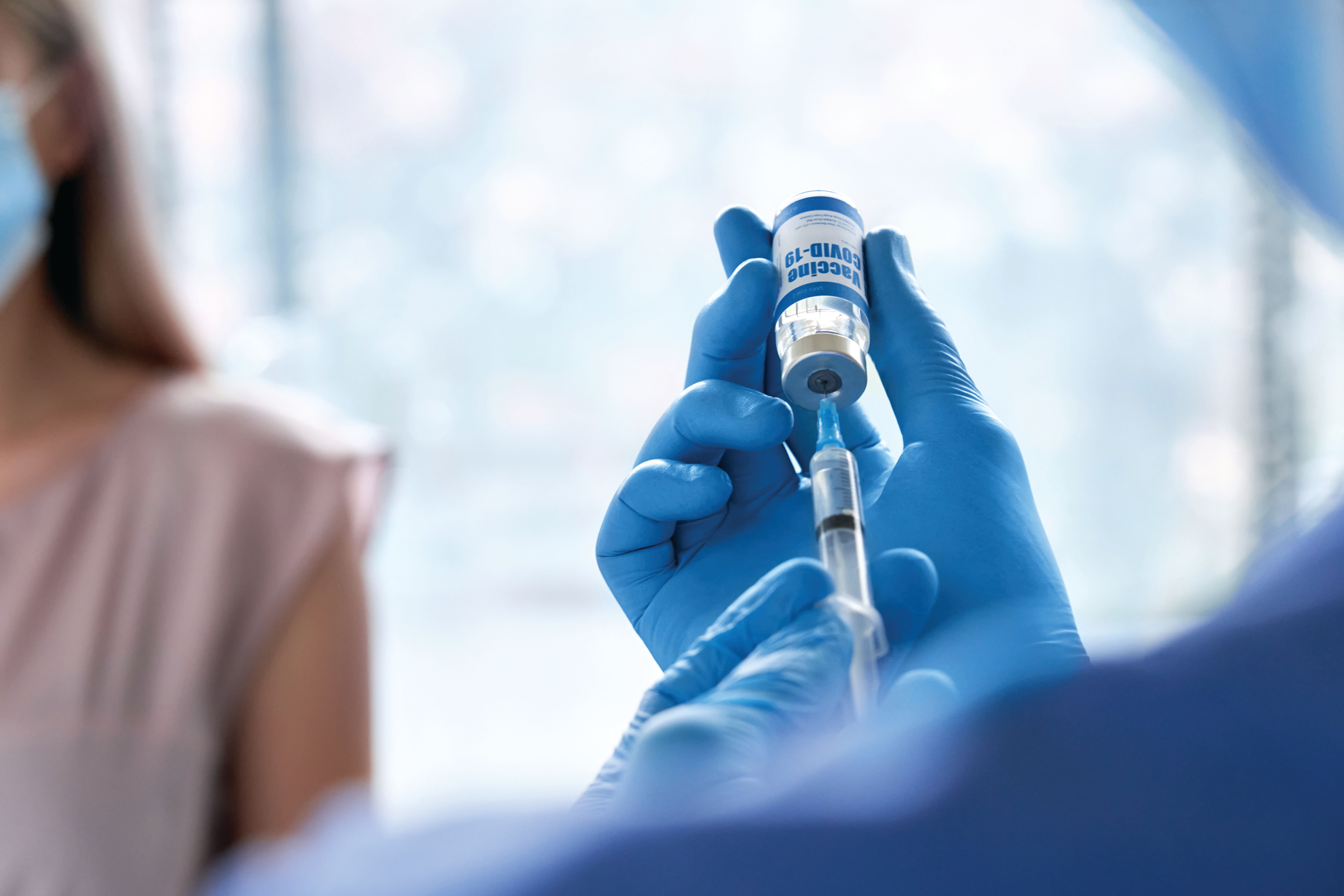New NIAID report on maternal COVID-19 vaccination offers direct evidence of protection for newborns
New data demonstrates protection against new variants.
New NIAID report on maternal COVID-19 vaccination offers direct evidence of protection for newborns | Image Credit: 395077344 - stock.adobe.com.

Vaccination against the SARS-CoV-2 virus during pregnancy has been demonstrated in multiple studies to offer a protective effect for both mothers and babies, but a new study led by the National Institute of Allergy and Infectious Diseases (NIAID) provides further evidence of just how far this protection goes.1
The CDC already recommends vaccination during pregnancy for the protection of expectant mothers, citing data on the safety and efficacy of COVID-19 vaccines during pregnancy. CDC guidance also suggests that vaccination during pregnancy can pass valuable protection on to newborns in the first months of life—before they are eligible to receive a COVID-19 vaccine themselves.2
Numerous studies have shown that COVID-19 vaccination during pregnancy can elicit an immune response in infants for months after birth, but these reports have relied on retrospective data. The new NIAID report is the first to provide direct evidence that maternal vaccination during pregnancy can create measurable antibody levels for months after birth, says Cristina Cardemil, MD, MPH. Cardemil is a medical officer in the NIAID Division of Microbiology and Infectious Diseases and was lead author of the new report, published in Pediatrics in February 2024.
Previous retrospective studies on maternal COVID-19 vaccination lacked direct measurements of antibodies in mother/infant pairs over time to see who was getting sick, she explains. Previous research was also unclear when it came to determining how long protection from maternal vaccines would last.
“What we did know 6 months or a year ago is there were studies showing antibodies at delivery in vaccinated mothers, and the suggestion was that the protection could last for some time. But it was more of an open-ended question as to how long it would last,” Cardemil explains.
The new study shows that there were high levels of antibodies at birth in infants whose mothers had been vaccinated or received a booster during pregnancy. Specifically, mothers who received 2 or 3 doses of messenger RNA COVID-19 vaccines during pregnancy had measurable levels of full-length spike immunoglobulin G, pseudovirus 614D, live virus D614G, and Omicron BA.1 and BA.5 neutralizing antibodies at birth. Those infants were followed throughout 2021 and 2022, and infants born to those boosted mothers were 56% less likely to develop a COVID-19 infection in the first 6 months of life compared with infants of nonboosted mothers.1
The protection can last at least 6 months, according to the report, offering protection until infants can receive their own dose of a COVID-19 vaccine.
“At this point in the pandemic, millions of pregnant individuals have received COVID-19 vaccines. We have a lot of data to indicate it’s a very safe and effective vaccine during pregnancy,” says Cardemil. “We know that moms who are infected during pregnancy are at a real risk for complications both for themselves and their unborn children.”
Other new data from the study show how vaccine protection could fluctuate by variant. In this study, researchers tested for 5 different antibodies at birth, some that bind to the virus and others that neutralize the virus. All the antibodies were produced as a result of vaccination with the original COVID-19 vaccines formulas, she says, adding there were no bivalent or updated vaccines available at the time the study cohort was immunized.
This is an especially important finding, Cardemil adds, considering that even those original vaccines were able to offer protection against Omicron and other newer variants that emerged long after the initial maternal vaccination. Cardemil says this finding also indicates that even older versions of COVID-19 vaccines could offer mothers and their babies protection against new and emerging variants that are not technically covered by the vaccine that was administered.
“That’s a very strong finding that shows these vaccines that were created against the original variant that has evolved several times still provide protection that we are looking for,” she says. “It doesn’t have to be the perfect match to what is circulating that minute. The vaccines are broad enough to protect against future circulating viruses.”
For clinicians, Cardemil says the study helps to demonstrate the importance and benefit of maternal vaccination. Natural immunity from a previous COVID-19 infection can wane over time, and as the years pass since the pandemic it can be easy to lose sight of the toll the virus can take on infants, Cardemil says.
“I think from my perspective, now that we’re several years into the pandemic and we have both prevention and treatment methods, people have lost sight of how COVID-19 can still land you in the hospital,” she says.
Infections in older adults and other vulnerable populations often get the most attention when it comes to COVD infections, but Cardemil says that infants under age 1 year have the same rates for hospitalization and death as older adults. That fact that older adults can receive the COVID-19 vaccine while infants younger than 6 months cannot makes the threat of a COVID-19 infection more severe in the newborn group, she says.
“The group that’s most vulnerable for COVID-19 are potentially unprotected,” Cardemil says. “For newborns up to 6 months of age, that’s a gap in immunity. But now we know we can fill that gap through maternal vaccination.”
Click here for more from the April issue of Contemporary Pediatrics.
References:
- Cardemil CV, Cao Y, Posavad CM, et al. Material COVD-19 vaccination and prevention of symptomatic infection in infants. Pediatrics. 2024;153(3):e2023064252. doi:10.1542/peds.2023-064252
- COVID-19 vaccines while pregnant or breastfeeding. Centers for Disease Control and Prevention. Updated March 8, 2024. Accessed February 23, 2024.
https://www.cdc.gov/coronavirus/2019-ncov/vaccines/recommendations/pregnancy.html